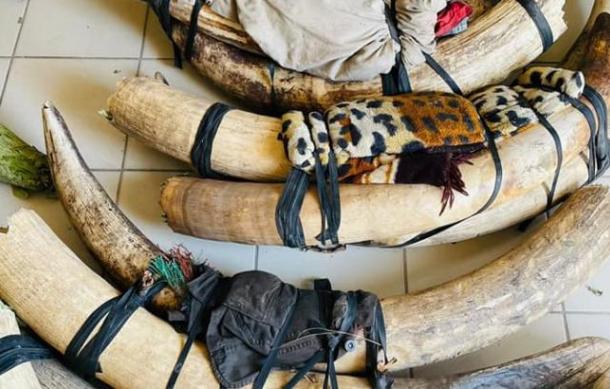
Wildlife crimes have become a national concern, threatening Namibia's national heritage and disturbing the environment and the ecosystem.
Prosecutor General Martha Imalwa shared these sentiments during the annual Stakeholder Forum on Wildlife Protection and Law Enforcement.
Imalwa says the poachers continue to find new methods and tactics to continue poaching.
Therefore, there is a need for continuous, concerted, and innovative efforts to tackle wildlife and other environmental crimes.
The forum, together with various stakeholders, will deliberate on measures to tackle wildlife crimes.
"This is paramount given the fact that criminal elements commit these crimes against our rich biodiversity unabated and continue to change their methods and tactics when committing wildlife crimes. As stakeholders, we must also do the same in our efforts to counter these threats. It is in meetings like this and at many other forums focusing on wildlife crime that we should brainstorm methods, strategies, and measures on how we can eradicate wildlife crime in the country."
The meeting further cements the commitment of stakeholders to protect the country's wildlife from crime, which is also threatening the natural lives of its citizens.
Therefore, the Prosecutor General sent out a stern warning to all involved in poaching that the law will take its course to protect the country's wildlife for generations to come.
"The ECU (Environmental Crime Unit), together with the Asset Forfeiture Unit within the Office of the Prosecutor-General, is tasked with the responsibility that crime does not pay. If you benefit from such a crime, we can follow you through the civil process and conviction-based forfeiture. We will hit you where it hurts most, which is your pockets. We will empty your house and farms and take away from you also your items that were used or bought with proceeds of crime."
A National Report on Wildlife Protection and Law Enforcement was also launched during the two-day forum.
The report highlights Namibia's inter-sectoral commitment to fighting environmental crime with three government agencies, forming the integrated focal points of wildlife protection and law enforcement.
"We place a high value on transparency regarding wildlife crime, and we provide weekly updates on wildlife crime statistics while we give regular updates on rhino and elephant poaching. This report gives context to these weekly reports, while the narrative of this report aims to build a greater understanding of the key drivers of environmental crime as well as the challenges faced by the partnership and steps taken to counter these," said Major General Anna-Marie Nainda, the Deputy Inspector General of Administration in the Namibian Police.
A Special Court for wildlife crimes has also been playing an important role, not only in wildlife protection but also in fighting corruption and money laundering.
The Office of the Prosecutor-General further created the Environmental Crime Unit, which is represented at all courts in the country.





